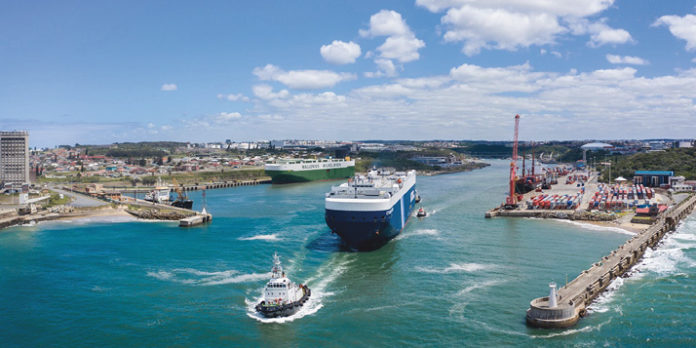
The Eastern Cape’s two Special Economic Zones play an important role in attracting investors to the province. Located in East London near the port and at the deepwater port of Ngqura 20 km north of Port Elizabeth, the East London Industrial Development Zone (ELIDZ) and the Coega SEZ provide the infrastructure that will allow the region to expand and diversify its economy.
As of 2019, the Coega SEZ has 45 operational investors who have collectively invested more than R9.9-billion. This includes the first phase of one of the most consequential investments, that of Chinese automotive manufacturer Beijing International Automotive Corporation (BAIC). The total investment by BAIC will total R11-billion and significantly add to the province’s already strong reputation for excellence in the automotive sector. Both SEZs have areas dedicated to automotive and automotive components manufacture.
The Ngqura port was built to handle containers, both from within South Africa and as a transhipment base for international containers, to handle bulk commodities and to act as a port to serve the Coega SEZ.

In July 2019 the Coega Development Corporation (CDC), operator of the Coega SEZ, announced that 18 new investors had invested R2.6-billion in the zone during the 2018/19 financial year. For the 2019/20 period, the CDC created 15 934 jobs. Since 1999 that figure is 120 990.
Sectors in which investment was received include:
- Aquaculture
- Renewable energy
- Copper smelting and steel rail wheel manufacture
- Agri-processing
- Automotive (commuter bus assembly)
- Chemical engineering
- Pharmaceutical.
Logistics, fibre-optic cabling, PVC compound manufacture and tyre recycling were other confirmed ventures. At the ELIDZ, recent investments include a diamond cutting and polishing company and a condom manufacturer.
While the variety of investors at both SEZs continues to grow (Coega has 14 distinct business zones), developments in the Oceans Economy and the oil and gas sector are showing the greatest promise.
An established market for Liquefied Natural Gas (LNG) exists within the Coega SEZ and now that national government has stated that the SEZ could be the site of an LNG plant, the CDC and the Eastern Cape Provincial Government are preparing a Gas Market Analysis to enhance Coega’s readiness for an expected increase in gas use.
The existing 342 MW Dedisa Power Peaking Plant at Coega already has environmental authorisation for a 400 kV transmission line between the plant site and the Dedisa substation which reduces costs for future investors.
In 2019 a draft scoping report was prepared for an integrated LNG terminal and gas-to-power plant.

Imported LNG would be used as feedstock initially, while exploring local sources. Drilling off the southern coast has revealed vast resources in the Brulpadda field in the Southern Outeniqua basin. If some of this gas could be recovered, the two SEZs on the Eastern Cape coast would become critical to its utilisation.
Activity in the oil and gas sector would in turn stimulate the maritime sector. The potential of the Oceans Economy is already receiving a lot of attention in South Africa, and Nelson Mandela University’s Ocean Campus is one of the leaders. The South African International Maritime Institute (SAIMI) has new headquarters in Port Elizabeth.
Key goals behind the establishment of SEZs are to:
- encourage industries to develop in clusters, leading to economies of scale, skills-sharing and easier access for suppliers,
- create industrial infrastructure to promote investment,
- promote cooperation between the public and private sectors,
- use the zones as a launching pad for other developments.
About Special Economic Zones
Special Economic Zones are created in terms of the Special Economic Zones Act of 2014 (Act 16 of 2014). The act defines a SEZ as “geographically designated areas of the country that are set aside for specifically targeted economic activities and supported through special arrangements and systems that are often different from those that apply to the rest of the country.”
Incentives include tax breaks from the South African Revenue Service, subsidised interest rates from the Industrial Development Corporation, subsidies for employees earning below a certain level and for training, incentives and grants from the Department of Trade, Industry and Competition (dtic) and from national electricity utility Eskom. The SEZ is also a customs-controlled area.







